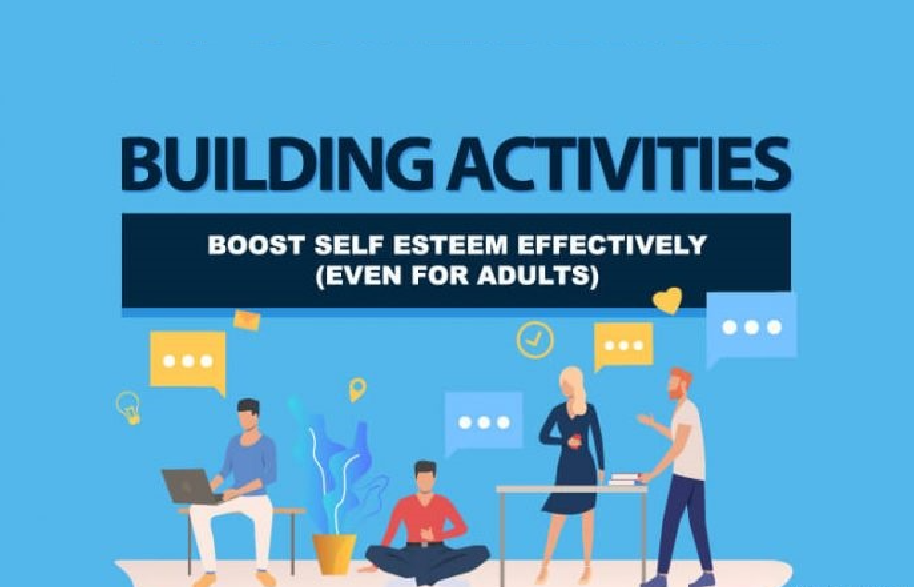A case of the “inner-doubts” can strike at any moment.
One second you might be high on life and feeling unstoppable. But the next, you’re paralysed with the fear of failure.
In most cases, a self-confidence deficiency is a simple problem to fix. In others, believing in yourself can seem like a monumental challenge. That’s especially true if self-confidence confidence-building activities will help.
In either case, there are some simple confidence-building activities you can do to win back your mental fortitude. Read on if you want to regain your confidence and learn some habit-forming tricks to maintain a strong sense of willpower – for any obstacle that life throws in your way!
What is self-confidence?
A definition of self-confidence can be as simple as having the belief that you can do things well. That’s according to the Cambridge Dictionary.
While a good start, it lacks some important aspects of the term, so let’s dig in a bit further.
Self-confidence is a part of your mental health and well-being. It’s based on your perceptions and the way that you think about yourself or your abilities. But remember, your own thoughts can be flawed. That’s why it’s important to always remember that self-confidence is rarely related to your actual skills or abilities – it’s actually all in your head!
A fuller definition is that self-confidence is the courage in yourself to make assured decisions. It’s a positive feeling about yourself, and how you fit in with the world around you, to make courageous actions.
Those courageous actions can be as big or small as you want. It all depends on your particular situation. Self-confidence issues can affect nearly everyone, from business professionals, colleagues, leaders, athletes, students, family members … you get the picture.
For example, at the office, a strong sense of self-confidence might enable you to finish your big project in impressive time and get amazing feedback. Or, at home, a good sense of self-confidence might allow you to open up about yourself, get back on your feet after a bad breakup and meet with a blind date that your friend set you up with.
What does a lack of self-confidence look like?
It’s important to remember that low self-confidence has the ability to strip away your ability to be proud of what you accomplish. It will cloud your judgement and make it feel like there’s always a stormy cloud hovering over you.
It happens to students all the time. High-stress exams, highly critical professors and competitive classmates can all bring a student’s perception of self-worth and their own abilities crashing down to the ground.
Especially during the first year at the college level, even students that performed very well at secondary school can be shocked at the huge jump in difficulty and stress.
A student with low self-confidence exhibits some of the following characteristics:
– Doubting his/herself or his/her abilities;
– Being submissive and not actively seeking out challenges;
– Feeling overwhelmed and emotionally charged;
– Being hypersensitive to criticism;
– Feeling isolated or alone.
In addition to the internal deficiencies, there may be many more external consequences to a student’s low self-confidence. Other consequences might manifest themselves like low grades, lashing out at peers or loved ones and skipping (or even quitting) classes.
Do you recognise any of the above behaviours? If you look close enough you might see them in all sorts of situations: at work, at home and in colleagues and people you care about. You’ve probably even felt some similar feelings in yourself, too!
What are confidence building activities?
Here are some confidence building activities you can work on to build your self-confidence. If you want them to be successful, just be sure to take the time to try them out – it’s so easy to get distracted and feel unmotivated especially if you suffer from low self-confidence. However, they’re designed to be easy and thought-provoking so you can do them at any time in your life.
1. Focus on yourself and your strengths, even in moments of difficulty.
Hit the pause button and make a quick list of your strengths and the things you’re most proud of.
2. Reward and praise yourself for making positive steps in the right direction.
It’s important to remind yourself of your progress and to celebrate it. No, we’re not talking about retail therapy. Try some more nurturing and thought-provoking activities like taking a simple break, going for a walk or calling a friend you haven’t spoken to for a while.
3. Slow down.
Think of a difficult life situation that’s holding you back (either in the past or present). Now slow it down as you’d see in the special effects of an action movie. Think logically through the situation and figure out what you have to do to succeed.
4. Express your feelings and needs.
It’s so easy to be passive while your self-confidence is low. At work, you might become a “yes person.” If everyone knows that you’ll say yes to anything, you can get taken advantage of. That to-do list will pile up while your colleagues head out for their morning and afternoon breaks. Instead, learn to say “no” and respectfully express your feelings and needs.
5. Work with a counsellor.
It’s okay to ask for help at times. With low self-confidence, it’s common to feel unworthy of being the beneficiary of helpful advice. But don’t be shy about reaching out to a professional. They can help you through difficult situations with all sorts of proven psychological well-being exercises.
6. Meditate (no, really!)
Meditation is one of many great confidence-building activities that let you get control of your thoughts and build self-confidence.
7. Learn about topics that interest you.
Studying what you’re passionate about can be a great way to get a quick win to boost confidence and morale. If you’re passionate about it, you’ll set aside the hurtful distractions in your life to focus on improving yourself and building your confidence.
The #1 fool-proof way to improve self-confidence: make it a habit
There’s one more tip to add to our list of confidence-building activities we want to share to build your self-confidence. It’s a really important one and is more involved than the others so we want to take a closer look.
It’s all about creating habits in your life. Doing so can promote positive self-confidence.
A habit is an action that you do repeatedly – so much so that it becomes automatic. If you do something enough times, you won’t have to think very hard the next time you do it.
What better way to improve self-confidence than to create a habit for yourself?
How can you create positive and healthy habits? There are a few things to consider:
- Create a plan by setting up goals that you want to accomplish and taking inventory of the habits that you already have;
- Take action in things that interest you – these can be confidence-building activities, too;
- Set up an environment that promotes your habit-creation. For example, in the business world, if you want to learn how to take more risks in order to conquer your insecurity or fear of failure, then surround yourself in that professional environment. Take a business class to better understand how the top leaders make decisions, shadow a mentor, ask for their guidance or even start a small low-cost business on the side to get a knack for making your own confident decisions in the face of risky situations.
Remember – you have the ability to take control of your own habits and perceptions of yourself. Don’t put that ability in the back of your mind or at the bottom of your to-do list!
Creating a self-confident perception of yourself starts with you. So consider some of the confidence-building activities, above, and be sure to read more about developing confidence and upgrading your skills and abilities.







